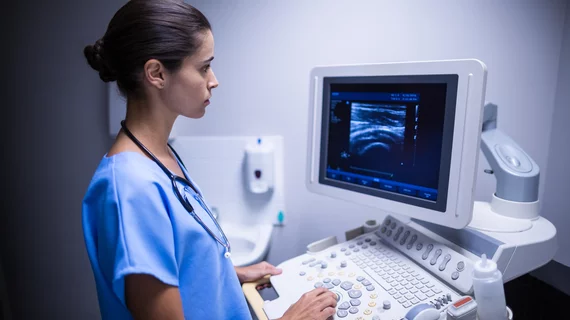No practice changes needed after ultrasound-related FDA safety warning, imaging experts say
Ultrasound experts say practice changes are unnecessary following a recent U.S. Food and Drug Administration safety alert tied to two deaths from imaging contrast agents.
The FDA issued its warning in late April for Definity and Lumason, injectable drugs that contain polyethylene glycol—a nonactive ingredient derived from petroleum that can cause allergic reactions. In a recent statement, the American Institute of Ultrasound in Medicine emphasized that these instances are rare, occurring in 1 of every 10,000 cases.
“Because the risk of severe allergic reactions to [ultrasound contrast agents] remain extremely low, and they provide very substantial benefits to our patients, we do not recommend any changes to clinical policy regarding indications for their use,” the group said. “The use of UCAs should continue in appropriate clinical situations under supervision with the addition of specifically asking patient if they have a [polyethylene glycol] allergy.”
The AIUM joins the American Society of Echocardiography and International Contrast Ultrasound Society in advocating for the two drugs’ continued use. Such injectable agents have been administered routinely for years to detect heart disease, assess risk, and identify tumors throughout the abdomen.
Ultrasound experts also noted that the 13 cases cited by the FDA were drawn from historical data representing millions of patient encounters over more than a decade.
“The FDA letter did not disclose a new risk, it just identified a specific type of risk that was already contemplated in product labels,” Richard Barr, MD, an Ohio radiologist, International Contrast Ultrasound Society board member and editor-in-chief of the Journal of Ultrasound in Medicine, said May 11.

